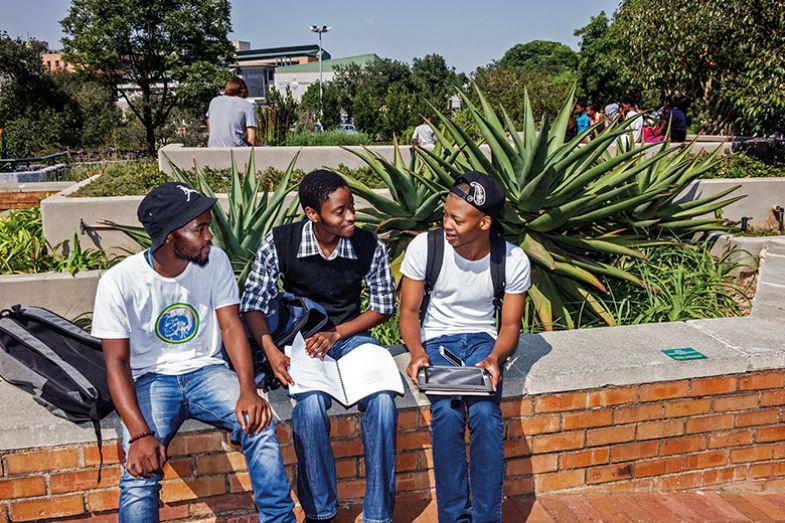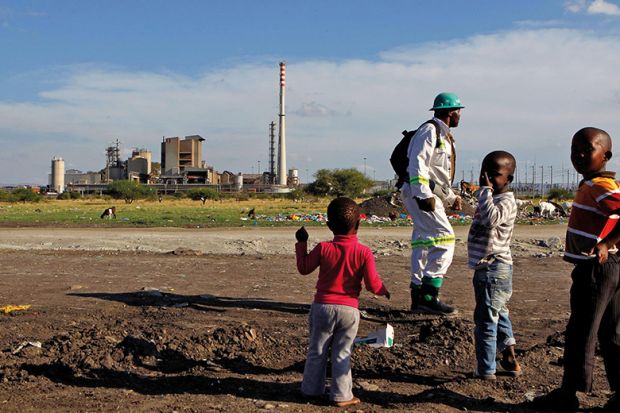The World University Rankings 2023 are out now
The origin of the University of the Witwatersrand (Wits) is inextricably linked to the mining industry and the development of the city of Johannesburg, the economic and industrial heartland of Africa.
Over the past 100 years, as new industries have flourished and the city expanded, the university responded – through producing the high-level skills required to advance the economy and by conducting research and fostering innovation to transform society.
Now, more than ever, there is an urgency for universities to conduct trans-, multi- and cross-disciplinary research across the public and private sectors, beyond geographic boundaries, to solve some of the great planetary challenges of the 21st century, some of which are yet unknown. While universities must continue to conduct discovery research, we need to remember that translational or applied research that influences public policy is just as valuable, and often has greater social impact.
I see innovation as the successful deployment of new ideas, inventions or methods that benefit society, with a strong emphasis on collaboration and multidisciplinarity across sectors. By breaking down silos, we can work across disciplines to find solutions to the major challenges that confront humanity.
We need an innovation ecosystem that includes students and researchers based in institutional entities, physical and virtual hubs, accelerators and incubators. Coupled with entrepreneurial activities and industry support where appropriate, this can do much to transform the lives of many people, particularly in Africa and the Global South.

There is no doubt that society can benefit when research-intensive universities work closely with industry partners, provided that four fundamental considerations are agreed to up front.
First, the quality of the academic project must not be compromised. Universities must hold true to their values, pursue the truth, maintain the highest ethical standards and remain academically independent.
Second, mutually beneficial, synergistic relationships that advance the public good must be developed.
Third, partnerships must be developed that are well governed and regulated, stipulating at the outset all matters related to ownership, intellectual property rights, copyright and risk mitigation and resolution.
Finally, the impact of the projects, programmes or outputs must be determined up front, and should be regularly measured, evaluated and, where necessary, adjusted.
Wits has sustained various successful partnerships with different industries over time. We were the first South African university to own an IBM mainframe computer, for instance. This partnership gave the university a head start in developing its computer science teaching programme decades ago.
Fast-forward to 2019 and Wits, in partnership with IBM, became the first university on the continent to access a quantum computer via the IBM Q Network. The benefits are multiple. IBM has established a research laboratory – one of only 12 in the world – in the university’s Digital Innovation Precinct, where academics and students have the opportunity to access the latest technology and to work with industry experts to solve real-world problems through research into precision medicine or climate change. Wits has established WitsQ, a multidisciplinary quantum initiative, and has been appointed to chair South Africa’s quantum computing programme.
Wits was born out of a school of mines, which was founded when gold was discovered in Johannesburg. These links have remained for a century: Wits continues to host one of the most eminent mining engineering schools in the world and works closely with industry.
For example, in partnership with a major mining house, the Wits DigiMine was established on the university’s campus to simulate high-tech, deep-level mining; to find ways to make mining safer; to prioritise sustainability; and to put people and the planet before profits. The partnership includes the funding of research chairs, postdoctoral and postgraduate positions across disciplines and the development of a curriculum that ensures that students are properly trained and employable when they graduate.
At the same time, the university remains independent and autonomous because of the strong governance frameworks in place and its ability to attract funding from multiple sources, reducing its reliance on industry, the state or any one sector.

In another example, as part of the war effort in the early 1940s, engineers at Wits, under the leadership of Basil Schonland, developed and tested the first radar set from our campus to a hill some kilometres away. Fast-forward 70 years and researchers are now testing the safe encryption and transmission of data through light on the same spot. Coupled with our postgraduate students’ construction of “peco grids” using solar panels, this research means that, soon, people living in remote villages will be able to access electricity and data without having to connect to any fixed infrastructure. These are local solutions to local problems that could be monetised and developed at scale with industry partners for the benefit of communities.
A final example is a successful technology called SmartSpot. Invented by Wits researchers Bavesh Kana and Lesley Scott, this device to accurately measure the accuracy of TB tests has been endorsed by the World Health Organisation and is helping to save the lives of millions of people across the globe. It would never have reached that scale if it had not been commercialised: in this instance, through synergistic relationships with the public and private sectors, researchers, investors and patients. The university benefits, too. Ultimately, the innovation advances the public good.
All that said, there are instances in which partnerships with industry may be unsuccessful. These should not be pursued for the sake of trying to make them work. Rather, universities should regularly evaluate their partnerships and maintain only mutually beneficial relationships with like-minded social actors that benefit humanity.
Zeblon Vilakazi is vice-chancellor and principal of the University of the Witwatersrand and a Fellow of the Royal Society (UK).
POSTSCRIPT:
Print headline: Well-built industry ties can deliver the goods
Register to continue
Why register?
- Registration is free and only takes a moment
- Once registered, you can read 3 articles a month
- Sign up for our newsletter
Subscribe
Or subscribe for unlimited access to:
- Unlimited access to news, views, insights & reviews
- Digital editions
- Digital access to THE’s university and college rankings analysis
Already registered or a current subscriber? Login








